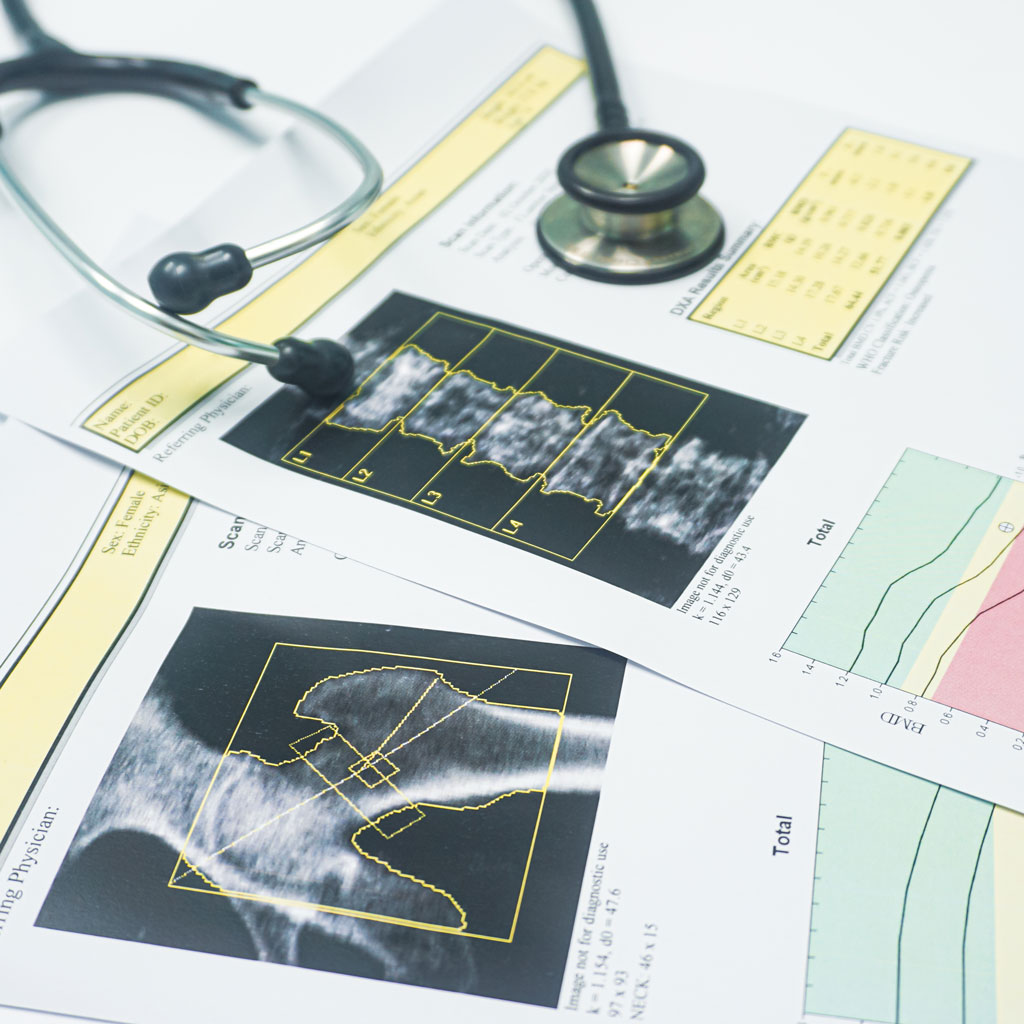When was the last time you thought about the state of your bone health?
Protecting your bones is easier than you think. Your bones are continuously changing — new bone is made and old bone is broken down. When you’re young, your body makes new bone faster than it breaks down old bone, and bone mass increases. Most people reach their peak bone mass around age 30.
Osteoporosis is the most common condition affecting our bones, and your risk of developing this condition depends on how much bone density you develop before reaching your peak. The more you have “in the bank”, and the more healthy lifestyle choices you make, the less likely you are to get Osteoporosis.
What is Osteoporosis?
Osteoporosis (OA), a condition characterized by weakening bones, is a silent threat that affects millions worldwide. More than 50 million people in the U.S. live with osteoporosis.
According to the Cleveland Clinic: “Osteoporosis is common in people over 50, and experts estimate that half of all people assigned female at birth and 1 in 4 people assigned male at birth over 50 have osteoporosis. Studies have also found that 1 in 3 adults over 50 who don’t have osteoporosis yet have some degree of reduced bone density (osteopenia).”
Most people aren’t aware that they have Osteoporosis until they break or fracture a bone. With advancements in medical technology, we now have a powerful tool at our disposal: Dual-Energy X-ray Absorptiometry (DEXA) bone density scans. These scans offer invaluable insights into bone health, aiding in the effective management of osteoporosis.
What is a DEXA scan?
This non-invasive procedure utilizes low-dose X-rays to measure bone density. By analyzing the density, DEXA scans provide precise information about bone strength and the risk of fractures. This data is instrumental in diagnosing osteoporosis and assessing the effectiveness of treatment plans.
One of the primary benefits of DEXA scans is their ability to detect osteoporosis in its early stages. Early diagnosis is crucial for preventing fractures and minimizing the progression of the disease. With these scans, healthcare professionals can identify individuals at risk of osteoporosis before symptoms manifest, allowing for timely intervention and personalized treatment strategies.
Furthermore, DEXA scans play a pivotal role in monitoring the response to osteoporosis treatment. Whether it’s medication, lifestyle changes, or dietary modifications, tracking changes in bone density over time provides valuable feedback on the effectiveness of interventions. Adjustments to treatment plans can be made based on the results of DEXA scans, optimizing patient outcomes and reducing the risk of fractures.
DEXA Scans and Evaluating Fracture Risks
By evaluating BMD at various skeletal sites, such as the hip, spine, and forearm, healthcare professionals can accurately estimate an individual’s likelihood of experiencing fractures. This risk stratification enables targeted interventions to prevent fractures, such as fall prevention strategies and prescription medications aimed at strengthening bones.
In addition to aiding in diagnosis and treatment, DEXA scans empower individuals to take proactive steps toward better bone health. By visualizing their bone density and understanding their fracture risk, patients are motivated to adopt lifestyle changes that promote bone strength. This may include regular exercise, adequate calcium and vitamin D intake, smoking cessation, and minimizing alcohol consumption.
It’s important to note that while DEXA scans are invaluable tools, they should be interpreted in conjunction with clinical assessment and risk factors. A comprehensive approach that considers medical history, family history, lifestyle factors, and other relevant variables ensures optimal management of osteoporosis.
Women are at a 4X greater risk for osteoporosis than men. The doctors at A.T. Radiology recommend that all women over 65 have a DEXA test, as well as men over 65 with low testosterone levels.
A.T. Radiology offers DEXA scans for bone density at our imaging centers in Winter Haven, Lake Wales, and Davenport. If you are interested in a DEXA scan at A.T. Radiology, please contact our office at 863-419-8832.

